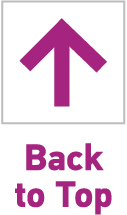Sometimes the toughest job interview questions are also the simplest and most direct. Here are six common interview questions that many people struggle to answer, along with tips to answer them effectively.

This is your chance to make a positive first impression. With such an open invitation to talk about yourself, it can be difficult to know what to highlight. Employers ask this to build rapport and move on to more specific questions based on your response.
Tips to answer the question:
- First impression matters. Leave a good first impression by showing your interviewers that you are prepared for the interview.
- Understand the job description and research the company thoroughly so you can frame your story in a way that demonstrates why you are interested in the role and why you are a good fit.
- Keep your response professional. Focus on relevant skills and experiences and highlight personal qualities or achievements that align with the company’s values.
- Be concise. Do not ramble on and bore your interviewer with your life story.
- Practice your response but do not memorise and avoid sounding rehearsed. Deliver your answers naturally and confidently.
Sample response:
My name is [your name]. I recently graduated from NTU with a degree in [your major]. During my time at NTU, I gained experience in [relevant coursework or activities]. I was also actively involved in [projects or extracurricular activities] which helped me develop [relevant skills/transferrable skills]. I also completed an internship at [organisation name] where I was able to apply my knowledge into practice. Now, I am excited to bring my skills and experiences and contribute to your team.

Like “tell me about yourself”, this question is an open invitation to convince the hiring manager why you are a good fit for the role.
Tips to answer the question:
- Research the company’s culture, vision and projects/products that resonate with your own goals and interests.
- Give specific examples to demonstrate your understanding of the company’s industry standing and express enthusiasm for wanting to contribute to its success.
- Tailor your response to the responsibilities of the role and explain why you would enjoy the work.
- Describe how you see yourself succeeding in the role.
Sample response:
I am excited about the opportunity to work at this company because of its reputation for innovation and commitment to pushing industry standards. I have followed your recent projects, particularly [mention a specific project or achievement relevant to the company], and I am impressed by how you combine creativity with cutting-edge solutions. I believe my skills in [mention your relevant skills] align well with your company’s goals, and I am eager to contribute to a team that consistently delivers impactful results.

Hiring managers ask this question to determine how well your strengths match the skills needed for the role. It also gives them an idea of your self-awareness and communication abilities. Many people struggle with this question due to the fear of sounding boastful but with preparation and the right balance of confidence and humility, you can let the interviewer learn that you are a good fit for the job.
Tips to answer the question:
- Avoid making broad statements such as “I am good at multitasking” and stop at that.
- Provide specific examples and use measurable achievements to showcase your strengths, such as internship experiences or project work.
- Tailor your strengths to the requirements of the position you are applying for.
- Be honest.
Sample response:
One of my greatest strengths is my ability to multitask effectively. During my final year, I maintained a 4.5 GPA while managing my final-year project and leading the student consultancy club. I also mentored younger students, helping them with academic and internship advice. I was able to prioritise and stay organised, which allowed me to manage these different responsibilities without sacrificing the quality of my work.

This feels like a trick question to trip you up in an interview. It can also feel like an invitation to humblebrag with responses such as “I work too hard” (please don’t!). Interviewers ask this question to find out how honest and self-aware you are. They also want to find out if you have the drive to improve on your weaknesses.
Tips to answer the question:
- Do not say you have no weaknesses.
- Avoid cliché answers like “I work too hard” or “I am a perfectionist”.
- Focus on a weakness that is not critical for the role.
- Highlight your efforts to improve and put a positive spin on the weakness.
Sample response:
I am working on delegating tasks more effectively. I tend to take on a lot of responsibilities because I want to ensure everything is done well, but I realised that this can sometimes slow things down. I am learning to trust others with tasks and delegate more efficiently. This has helped me become a better collaborator and ensures that projects move forward smoothly.

A fresh graduate may find it challenging to answer this question because of the lack of professional experience. What the interviewer is really asking here is, what is it that sets you apart from other candidates. It is important to answer this question confidently, focusing on your strongest selling point, and highlight skills and experiences relevant to the role.
Tips to answer the question:
- Answer confidently.
- Focus on your strongest selling point and what you can bring to the team.
- Highlight relevant internship experiences, school projects or extracurricular or volunteer activities.
- Show your enthusiasm and readiness to learn.
Sample response:
As a recent business graduate, I bring a fresh perspective, a strong foundation in financial principles, and hands-on experience from internships and academic projects. At university, I led a team project analysing market trends, which gave me practical insights into data analysis and reporting. During my internship at ABC Company, I applied my skills in real-world scenarios by supporting the finance team in streamlining their budgeting process. I am eager to contribute to your company and help achieve its financial goals.

Never say no even if the interviewer has covered all the points you wanted to know. Ask for more details about one of the points, e.g. the culture of the team that you will be working with, career advancement opportunities, how job performance is measured, etc. to demonstrate that you have a keen interest in the role.
Sample response:
I would love to learn more about the team I would be working with. How do they collaborate, and what are the key qualities that make someone successful in the team?
OTHER TYPES OF INTERVIEW QUESTIONS
Behavioural Questions
Behavioural interview questions ask candidates to recall past experiences and explain how they handled it, such as how they led a project or solved a problem in a team. Examples include “Tell me about a time when you had to resolve a team conflict” or “Describe a time when you disagreed with your professor or manager.”
If you have not encountered the situation before, answer the question hypothetically as you would if they have happened to you, “I have not encountered this situation before but this is how I would handle it if it happened.”
Situational Questions
Similar to behavioural questions, situational interview questions ask you to describe how you would respond to hypothetical situations you might face on the job, such as “what would you do if…”
Competency Questions Competency questions assess if you have the skills required to succeed in the job. These competencies can include hard skills like technical skills, or soft skills such as communication and teamwork. For example, “Describe a time when you used your analytical skills to make a decision.” To answer all these questions, use the STAR approach (see Resume Do’s and Don’ts).
UNCOMMON CURVEBALL QUESTIONS
Other than the usual interview questions, employers may surprise you with one or two unexpected questions to assess your problem solving, logical thinking, and communication skills. These questions may also help the hiring manager judge whether your personality is a good fit for the organisation.
Questions like “How many manholes are there in Singapore” may catch you off guard. Don’t panic if you are unsure how to answer them. Interviewers are not looking for a correct answer and are more interested in how you approach the problem and your thought process. These questions also assess your ability to stay calm under pressure.
In conclusion, preparing for job interviews involves more than just knowing your resume; it requires understanding how to effectively answer various types of questions. Whether facing common interview questions, behavioural, situational, or even curveball questions, being well-prepared helps you showcase your skills, experiences, and problem- solving abilities. By practicing thoughtful responses and maintaining confidence, you can make a strong impression and increase your chances of landing the job.







